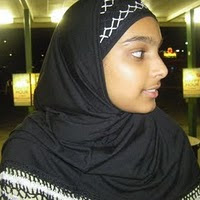In general the movie was about a screenwriter and his struggle to make a book into a movie, the problem is that the book is complete as itself, but there is no concrete story in the book which could make it into a good movie.
I thought the idea of the movie, and how it was edited and portrayed was phenomenal. It first seemed to save so much time, by showing the screen-writing in working, but also showing a side world where the screen-writing is being acted out and we get to understand the story of the book in a better way. Along with how the story was portrayed, another thing that I loved in the movie was the extreme "pouring of the mind," or having the stream of consciousness of the main character Charlie Kaufman as a voice over. It made me feel like he was more of "personable" character, almost where I could relate to him, it felt as if he was not a character from a movie! This movie was post-modern, which could be seen throughout the movie, for in a way we had control of what we were watching, constantly we were reminded that it is a movie. I thought it was ironic that until Kaufman believed in being a true writer, and producing something unique the movie that was being played on the side also seemed very unique, but after he met Orleans and went to McKee's class suddenly the movie joined the world of Kaufman and everything started to happen similar to what happens in cliche movies.
Everyone in class seemed to agree that around the ending (when Orleans and Laroche meet up, and then a series of events happen which include Orleans taking drugs, both Orleans and Laroche running after Kaufman with a gun, etc) was very cliche and expected. But I was quite startled when Donald flew out of the car, after just being shot and how both Charlie and Donald were glad that they were still alive. And I do agree that everything in the end started to follow the genre of trying to have a successful movie in the box office. The trailer has a segment from 1:33 to 1:47, where it basically shows the irony of the ending of the movie. The ultimate was also very surprising, when Charlie gets away with any crimes done, and also finally kisses the woman he loves! I was surprised that the girl replied with "I love you," also, surely that wasn't expected after knowing the story but to have a cliche ending everything had to end happily. And the scene after that, watching the flowers go through seasons practically was also a great idea. Without having dialog or actors, that scene yet seemed so perfect with the song.
In general, Kaufman wanted/had to write a screenplay for a book that Orleans wrote on Laroche. The idea of making the book into a movie was not a problem, for movies are often made from little things like newspaper articles. The problem was that Kaufman wanted to live up to the expectations of the author, and not add the cliche hollywood aspect into the movie, since it was not like this in the book. Overcoming this problem is what Kaufman faced, and in the end used the hollywood aspect in his movie, but the movie made it seem like it wasn't Kaufman's fault since that is what actually happened in Kaufman's life. I think this movie played around with reality and what's not reality a lot!

I agree about the voice-overs that we see, especially the one at the very beginning of the movie. Just as you said, it does make Charlie's character more personable because before we even see what he looks like, we are inside his mind and listening to his thoughts. It's a unique and fast way to introduce the main character. Even though it made me feel uncomfortable, probably because it was so long and depressing, it was a creative approach.
ReplyDelete